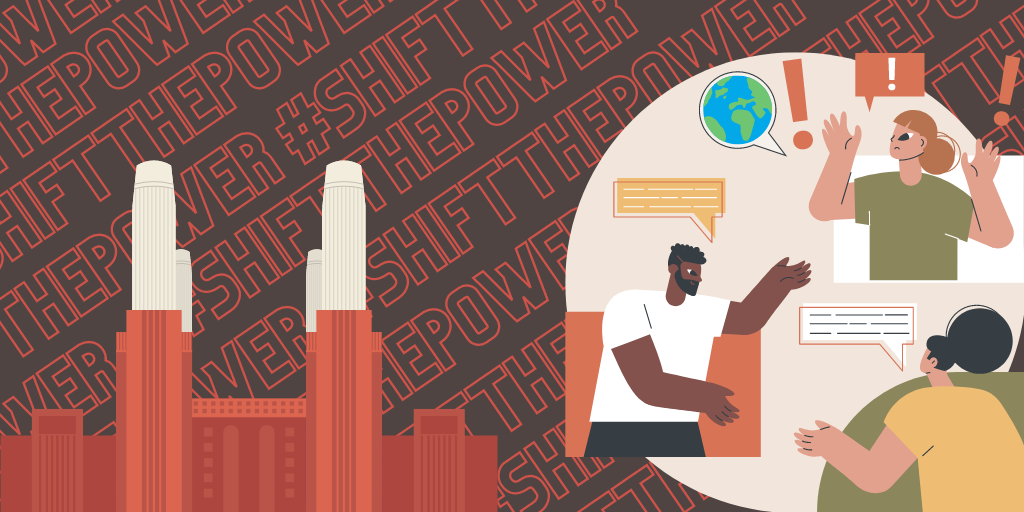
By Willemijn de Bruin, Timothy Kisuule, Lily Maćków-McGuire, Marina Raoilimanantsoa, and Alastair Spray
This blog is part of INTRAC’s season on shifting the power through monitoring, evaluation, and learning (MEL). The season is part of our celebrations of INTRAC’s 30th anniversary.
The shift the power movement has been one of the major topics of discussion within international development and civil society spaces in recent years. Despite this, certain dimensions of power are much less talked about than others. One of these is the question of age, and the role of young people in processes of change.
This blog is an edited extract from conversations held in May 2022 involving five civil society practitioners. All of them are under 35 or younger at the time of publication and were involved, at different times and in different roles, with The Development Alternative (TDA). A more complete version is available as a downloadable dialogue paper under the title “The unique insight of young people – youth, development, and shifting the power”.
How do young people fit into the shift the power movement? What does it mean to shift the power to young people?
Alastair (28): Young people fit in the sense that historically they have lacked power. Young people in development have been limited to enthusiastic volunteers, tokenistic roles, or photo opportunities. There’s little power at those levels of involvement.
Marina (35): Maybe we should be talking more about “sharing the power”. Some young people do have more access to power than others based on class, rural/urban, etc. All of these things have to be considered.
Tim (32): In my country Uganda, the majority of people are young and it’s sad that the decisions that are made for every aspect of their future, every sphere that affects them is usually made by people who are older.
What is the unique contribution that young people can make to civil society and to development work?
Marina: The Internet gives young people a certain specific insight. Particularly in urban areas, people have ideas that are rooted in online communities and exposure to the wider world. In Madagascar, there is an increased interest in social and ecological justice amongst urban middle-class youth partly because they’re more exposed to ideas from abroad in a way that other generations may not be.
Willemijn (31): I think the current younger generations (Y and Z) grew up in a new globalised world and technology is a big part of that. We have a greater sense of being global citizens and are hopefully a bit more open-minded and inclusive and that could benefit the sector – especially in political/economic narratives.
Lily (27): Young people shouldn’t be “contributing”, but they should be the root of knowledge about the situation. They have a unique insight. Young people can see issues as they are, without needing to have a lot of formal qualifications. The sector is liable to overcomplicate issues which young people can sometimes cut through with their direct and simple observations. They can help us get away from jargon.
What are the barriers preventing greater involvement for young people? In what ways do they lack power?
Alastair: Expectations are unrealistically high for researchers carrying out work in communities and this shuts out young people starting a career.
Tim: There are a number of issues or ways that people are blocked. Sometimes people promote a view that the young are incompetent and inexperience. There are many connected issues – some structural, political and social or cultural.
Willemijn: What struck me about a TDA study was that (particularly in Madagascar) young people themselves believe quite negative things about their own demographic. There is a powerful sense that only older people can contribute. Even within INTRAC, we’ve discussed the emphasis we place on structural barriers (education, work experience, variety of contexts worked in).
What can organisations do to shift the power by increasing the role for young people in their work?
Marina: There’s no way around the fact that young people in countries like Madagascar may not have the usual expected skills but that’s part of a broader, more complex context. People are a product of their system. Organisations can and should invest in young people who have potential even if to begin with they may not tick all the boxes.
Lily: Organisations in the North should focus on influencing, and leave the delivery to local organisations as far as possible. The influencing workstream of TDA was good in this respect. We need a much better understanding of the grassroots landscape in the places we work. We have to admit where we don’t understand a local context properly, and put people who do in the position of power.
Download the full dialogue paper, “The unique insight of young people – youth, development, and shifting the power”.